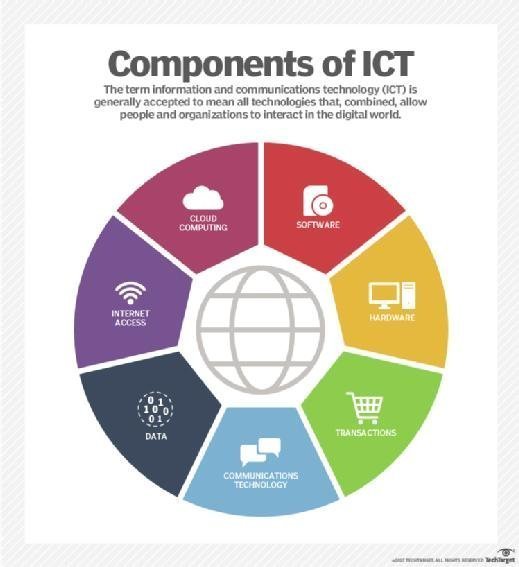Can You Jam CCTV Cameras?
The question of whether or not it is possible to jam CCTV cameras has been around for quite some time. As technology advances, the ability to disrupt or even disable CCTV cameras has become more of a reality. This article will discuss the different ways you can jam CCTV cameras, and the potential legal implications of doing so. While it is possible to jam CCTV cameras, there are several things to consider before attempting this. It is important to remember that jamming CCTV cameras is illegal in many countries, and it can have serious consequences. Additionally, there are other, more effective options available to protect yourself from unwanted surveillance.
What is a CCTV Camera?
CCTV cameras, also referred to as Closed Circuit Television cameras, are an increasingly important part of our security systems. They are used to monitor and record activity in an area, providing a visual deterrent to crime and allowing for the quick identification of those responsible for any wrong-doing. But what exactly are these cameras and how do they work?
A CCTV camera is a small, electronic device that contains a lens, an image sensor, and a processor, all of which are used to capture and transmit footage of an area. The footage is then sent to a designated monitor or recording device. The camera is typically attached to a wall, ceiling, or other structure, and can be used both indoors and outdoors.
CCTV cameras are used for a variety of reasons, including home security, surveillance, traffic monitoring, and crime prevention. They can be used to monitor an area for suspicious activity, to help identify criminals, and to provide evidence in the event of a crime. In addition, CCTV cameras can be used to monitor employee performance in a workplace, or to monitor the safety of children in a school or daycare setting.
The use of CCTV cameras is becoming increasingly prevalent in today’s society, and they are an important tool for maintaining safety and security. However, they are not infallible, and anyone considering the installation of a CCTV system should be aware of the potential risks associated with their use.
The Pros and Cons of Jamming CCTV Cameras
CCTV cameras have become increasingly popular in recent years, with many businesses, homes, and public spaces relying on them for security and surveillance. While CCTV cameras are an invaluable tool for security, they can also be vulnerable to jamming if not properly protected. Jamming a CCTV camera means interfering with its signal to prevent it from working properly. While jamming a CCTV camera may seem like a simple solution to security concerns, it’s important to consider the potential pros and cons before making any decisions.
On the one hand, jamming a CCTV camera can prevent it from working properly, making it more difficult for intruders to access the area. In addition, jamming a CCTV camera can also help protect the privacy of those who live or work in the area, as it can prevent the camera from recording them without their consent. On the other hand, jamming a CCTV camera can also present some risks. For example, if the camera is used to monitor a public space, jamming it can make the area less secure and make it easier for intruders to access. In addition, jamming a CCTV camera may also be illegal in some jurisdictions, so it’s important to understand the local laws before taking any action.
Overall, jamming a CCTV camera can be a useful security measure in certain situations, but it’s important to weigh the potential pros and cons before taking any action. By understanding the potential risks and benefits of jamming a CCTV camera, businesses, homes, and public spaces can make an informed decision about whether or not it’s the right security measure for their needs.
Legal Implications of Jamming CCTV Cameras
The security of a property is of utmost importance, and CCTV cameras are often seen as the most effective way to keep it safe. But did you know that jamming CCTV cameras is illegal? Jamming any signal, including the one used by CCTV cameras, is a punishable offence that can result in long-term negative repercussions.
In this blog post, we will discuss the legal implications of jamming CCTV cameras. We will cover the general regulations surrounding the use of CCTV cameras, the laws that have been enacted to prevent jamming, and the possible consequences of breaking the law.
Signal jammers are designed to disrupt the radio frequency signals used by CCTV cameras. This disruption can prevent the camera from transmitting its data, which could potentially leave the property vulnerable to theft or other criminal activity. While these devices are not illegal in themselves, they are regulated by governments around the world, and their use is prohibited in many places.
Under the Wireless Telegraphy Act 2006, it is illegal to jam any signal without a valid license. Those found guilty of breaking this law can face fines of up to £5,000 and/or imprisonment for up to two years. Additionally, the use of signal jammers can interfere with other electronic equipment and cause financial losses, and those found guilty of causing such losses can face civil action and/or criminal prosecution.
Therefore, it is important to be aware of the legal implications of jamming CCTV cameras. It is important to remember that the use of signal jammers is illegal, and that any interference caused could lead to serious consequences. If you are considering jamming CCTV cameras, be sure to consult with a legal professional to ensure that you are acting within the law.
How to Jam a CCTV Camera
The use of CCTV cameras has become commonplace in our daily lives, whether it’s for security, surveillance or even commercial purposes. But what happens when someone tries to jam a CCTV camera? Can it be done and what are the implications?
Jamming a CCTV camera is a technical process that requires knowledge and skill. It is done by sending out a strong signal on the same frequency as the camera, which overwhelms the camera’s receiver and blocks its signal. Jamming a CCTV camera can have serious implications, including interfering with the operation of the camera and other nearby devices. It can also be used to disrupt the surveillance footage, making it difficult or impossible to view.
The use of jamming a CCTV camera is illegal in many countries, as it can pose a security threat and violate privacy laws. As such, it is important to know the legal implications of jamming a CCTV camera before attempting to do so.
For those looking to jam a CCTV camera for legitimate purposes, such as security and surveillance, there are several tools available to help. Some of these include signal blockers, signal amplifiers and signal jammers. All of these tools can be used to disrupt the signal coming from the camera and prevent the footage from being seen.
Jamming a CCTV camera is a serious undertaking that should not be taken lightly. It is important to understand the legal implications and potential consequences before attempting to do so. With the right tools and knowledge, however, it can be done safely and effectively.
Alternatives to Jamming CCTV Cameras
CCTV cameras are a common security measure used to monitor public and private spaces. While jamming a CCTV camera may seem like an effective way to protect your privacy, this is not the best solution. Jamming a CCTV camera can have legal and safety implications, so it is important to understand the alternatives.
One alternative is to use motion sensors. Motion sensors can detect when someone is moving around a particular area and can be used to trigger an alarm system. This can be a good way to keep an area secure without having to constantly monitor the footage from the CCTV camera.
Another option is to use a physical barrier. This could be anything from a fence to an opaque window covering. This will prevent people from being able to see what is happening inside the area being monitored by the CCTV camera.
Facial recognition technology is another alternative. This technology uses algorithms to scan and match faces with a database of known individuals. This can be a useful way to identify people entering and leaving an area without having to rely on CCTV footage.
Finally, it is important to remember that CCTV cameras provide a valuable security service. While it may be tempting to try to jam the cameras, it is important to consider the alternatives and find the best solution for your needs.
Prevention of CCTV Camera Jamming
CCTV camera jamming is a growing security concern for many businesses. It can be done to interfere with the signal of a camera, preventing it from transmitting video. The consequences of having a CCTV camera jammed can be disastrous, leading to a decrease in security and a potential loss of important footage. Fortunately, there are steps that businesses can take to prevent this from happening.
One of the best ways to prevent CCTV camera jamming is to use a dedicated security system. This type of system is designed to detect and counteract any attempts to interfere with the signal. It also allows the user to set up a range of security protocols that can be used to stop any potential jamming attempts. Additionally, installing a dedicated security system can also help to reduce the possibility of a jammer being able to access the camera.
Another way to prevent CCTV camera jamming is to use a secure wireless connection. This type of connection is designed to be more secure than traditional Wi-Fi connections, as it encrypts the signal. This means that any attempts to access the camera will be intercepted, making it much harder for a jammer to access the signal. Additionally, using a secure wireless connection can also help to reduce the possibility of someone being able to access the camera remotely.
Finally, businesses can use a range of anti-jamming devices to prevent interference with the signal. These devices can be used to detect any attempts to interfere with the signal and can also be used to counter any jamming attempts. Additionally, these devices can be used to monitor the signal strength of the camera, allowing the user to be aware of any drops in signal strength.
By taking these steps, businesses can help to ensure that their CCTV cameras remain secure and free from interference. This can help to protect their property and also ensure that any important footage remains safe and secure.
FAQs About the Can You Jam CCTV Cameras?
1. Is it legal to jam a CCTV camera?
No, it is illegal to jam a CCTV camera in most countries. Doing so without permission is a violation of privacy laws.
2. What are the consequences of jamming a CCTV camera?
The consequences of jamming a CCTV camera can range from a warning to a fine or even imprisonment, depending on the severity of the offence.
3. Is there any way to stop someone from jamming my CCTV camera?
Yes, there are several ways to prevent someone from jamming your CCTV camera. You can harden your security system by using encryption, signal jamming detectors, or using dedicated wired connections.
Conclusion
In conclusion, it is possible to jam CCTV cameras, but it is illegal in most countries. Jamming can be done through various methods including using a signal jammer or using software. Jamming can be used for malicious purposes such as to hide criminal activity or to prevent surveillance. It is important to be aware of the laws and regulations surrounding jamming, and it is best to seek professional advice if you are considering jamming a CCTV camera.



